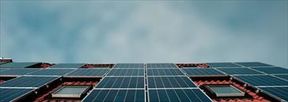Digitalisation of energy communities: New modes of organising, business models and transition governance

When
Where
Event language(s)
The “demand side” of the market, actions by citizens as consumers and producers of to low-carbon energy now plays an increasing role in the decarbonization of energy and built environment that are the largest carbon polluters in the EU. The synergies between energy and digital technologies open new opportunities for novel forms of citizen and community action. Energy communities have a key role in enhancing acceptability, participation, and justice in the net-zero transitions. Despite promising policy steps and isolated positive examples, there remain challenges and paradoxes in governance, business model development and societal organising of new types of energy communities that call for empirical and conceptual attention.
Digitally mediated decarbon communities project is organising a final workshop to focus on the key aspects in community energy development. We call for contributions including but not limited to the four central areas in better understanding, conceptualising and supporting energy communities in digitalized world:
- Digital, physical and hybrid modes of organising energy communities: energy community forms are diversifying, with different implications for energy transitions, democratic engagements and social justice.
- Energy community business model development: How collaborative value creation takes place at an ecosystem level? Opportunities and limits in combining operating logics (e.g., for profit, non-profit). Justice implications of business models.
- Transition governance related to energy communities: What is the current state of the current policy mixes for community energy? Coherence of digitalisation and community energy policies
- Analyses of broader green and digital transitions with an import to energy communities and citizen engagement in energy transitions
Workshop keynotes include Adrian Smith, Sampsa Hyysalo, Derk Loorbach and Eva Heiskanen. Two-day workshop will be organised in Aalto University campus in Helsinki on October 2nd to 3rd, 2024.
To express your interest in participating, send a 250–500 word abstract to digidecarbon@aalto.fi by 31st May. The decisions of acceptance will be made and informed by the end of June.
In your abstract indicate whether you join the workshop in person or only through online participation – we will retain one of the session tracks for hybrid participation.
The registration fee for the workshop is 150€. The fee covers dinner, lunches and coffees and public transit within the Helsinki region.
Based on the contributions, a special issue proposal to one of the topical journals (e.g. Energy Policy, Energy Research and Social Science, Environmental Innovation and Societal Transitions) will be considered.






